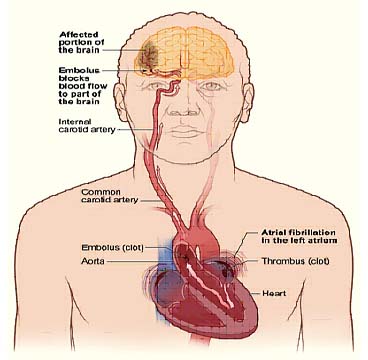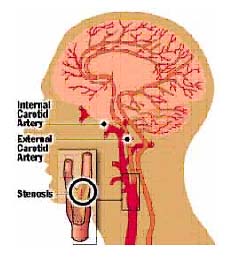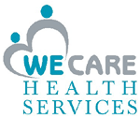IVF India offers information on IVF in India, IVF cost India, IVF hospital in India, Delhi, Mumbai, Chennai, Hyderabad & Bangalore, IVF Surgeon in India

A stroke occurs when the blood supply to part of the brain is suddenly interrupted or when a blood vessel in the brain bursts, spilling blood into the spaces surrounding brain cells. Within a few minutes, brain cells begin to die.A stroke is a medical emergency.
There are two main types of stroke. One (ischemic stroke) is caused by blockage of a blood vessel; the other (hemorrhagic stroke) is caused by bleeding. Bleeding strokes have a much higher death rate than strokes caused by clots.
Types of Stroke / Causes of Stroke
The most common type of stroke is a blockage. This is called an ischaemic stroke, which happens when a clot blocks an artery that carries blood to the brain. It may be caused by :

- Clogging of arteries within the brain (for example, lacunar stroke)
- Hardening of the arteries leading to the brain (for example, carotid artery occlusion)
- Embolism to the brain from the heart or an artery
The second type of stroke is a bleed, when a blood vessel bursts, causing bleeding (haemorrhage) into the brain. This is called a haemorrhagic stroke. It may be caused by :
- Cerebral hemorrhage (bleeding within the brain substance)
- Subarachnoid hemorrhage (bleeding between the brain and the inside of the skull)
Risk Factors of Stroke
- High blood pressure, or hypertension, is a major risk factor for stroke. It is a condition where the pressure of the blood in the arteries is too high.
- Common heart disorders such as coronary artery disease can also increase a person's risk for stroke.
- A heart condition known as atrial fibrillation is a major concern. Atrial fibrillation is irregular beating of the upper chambers, or atria, of the heart. When the atria quivers instead of beating in a regular pattern, blood is not fully pumped out of them and may pool and clot.
- Diabetes is another disease that increases a person's risk for stroke.
- Smoking almost doubles a person's risk for ischemic stroke, independently of other risk factors.
Symptoms of Stroke
- Numbness, weakness or paralysis on one side of the body (signs of this may be a drooping arm, leg or lower eyelid, or a dribbling mouth.
- Sudden confusion or trouble speaking or understanding others
- Sudden trouble seeing in one or both eyes
- Sudden trouble walking, dizziness, or loss of balance or coordination
- Sudden severe headache with no known cause
Diagnosis of Stroke
Stroke is diagnosed through several techniques: a neurological examination, CT scans (most often without contrast enhancements) or MRI scans, Doppler ultrasound, and arteriography. The diagnosis of stroke itself is clinical, with assistance from the imaging techniques. Imaging techniques also assist in determining the subtypes and cause of stroke.
CT or CAT scan) ó Uses X-rays to generate an image of the brain. Doctors use CT to determine whether a stroke has occurred and, if so, what kind.
MRI can give very accurate images of the brain. These are used to determine the presence, location and size of aneurysms and arteriovenous malformations, which are potential sources for hemorrhagic stroke
An EEG can provide valuable information about underlying problems in the brain. Some people who have strokes are prone to seizures, and this test will help doctors determine if seizures are present and if treatment with medications is needed.
Treatment of Stroke
Surgery, medications, hospital care and rehabilitation are all accepted stroke treatments.
Initial treatment for ischemic stroke involves removing the blockage and restoring blood flow.
Thrombolytic (Fibrinolytic) Drugs: In certain circumstances, a drug called tissue plasminogen activator (tPA) is given intravenously to break up clots and help restore blood flow to the brain. This medication carries a risk for increased intracranial hemorrhage and is not used for hemorrhagic stroke.
Carotid endarterectomy and cerebral angioplasty is done for transit ischemic stroke.
Carotid Endarterectomy......Read More >>
Cerebral Angioplasty......Read More >>
India Surgery Stroke Treatment,Stroke Treatment, India Stroke Surgery, Stroke Treatment, India Stroke India, India Stroke Treatment, India Stroke Rehabilitation, India Stroke Prevention, India Stroke Treatment Center, India General, rmation On Treatment For Stroke, India Medical Treatment Of Stroke,, India Stroke Diagnosis, India Treatment For Stroke, India Stroke Treatment Hospital, India Stroke Treatment Delhi, India Ischemic Stroke, India Hemorrhagic Stroke India





